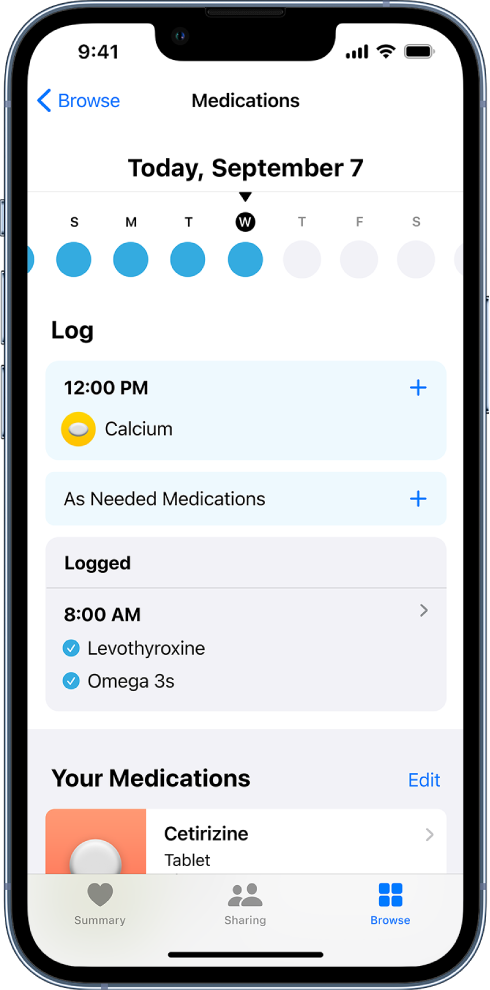
Imagine visiting your doctor’s office. Instead of swiping a copay card and filling out a paper form by hand, the receptionist says, “We take Apple Health.” You wave your iPhone over a digital kiosk, instantly uploading your current medical record and insurance information. Your copay is then deducted from a health savings account. Voila! The doctor will see you now.

This scenario is no longer relegated to the distant future. By introducing medication tracking to its existing iPhone Health app, Apple just did for long-term prescription drug users what it did for anyone with a physical wallet. It paved the way for an iPhone-native EHR tool capable of interoperable functionality.
The upshot to users, eventually, will be unrivaled convenience. For pharmaceutical companies, Apple’s new tool integrates their products more closely to patients’ general health files through the power of mobile apps ― something many drugmakers tried but failed to accomplish on their own. And for specialty drug patients, whose medical journey requires the most time and money, the iPhone medication tracking tool could prove to be a godsend.
The concept of a medication tracking smartphone app is not new. Medisafe, Mango Health (acquired by TrialCard), and RediHealth are among those which serve the same purpose, offering sophisticated functions and limited data integration with other apps. This and other existing medication-tracking tools have set a high standard for the industry. Apple, then, cannot expect to convert every iPhone user to its native medication tracker overnight. But these apps can’t instantly access Apple’s point-of-sale payment function, or integrate seamlessly with Apple Watch’s health-tracking features, or read, respond to and share stored Apple Health data with a provider. Allowing medication tracking within the Apple Health ecosystem promises unbound functionality ― not unlike the difference between changing from Venmo to Apple Pay.
For iPhone users with only a small handful of active prescriptions, that’s not a powerful selling point. These users might only use a medication tracker while traveling, if they use one at all. Specialty drug patients, whose prescriptions combat rare or life-threatening conditions, do not have this luxury. They must take more drugs more frequently than the general population. Pre-loading every actionable piece of data about all their prescription drugs ― including when to take each ― has the potential to unlock a world of conveniences.
The iOS tool underlying the Apple Health framework is HealthKit, a database that holds a user’s entire health profile. It enables any other app on your iPhone to access the data in your profile. What does that mean for specialty drug patients? Let’s say I need to reduce the frequency or dosage of one of my 20 prescription drug regimens. I can enter the new frequency or dosage by hand in the Apple Health medication tracker. Then, with one click, HealthKit can synchronize this change with the MyChart app, or whichever app my provider uses to communicate with me. Only a native app could facilitate such speed and ease for one simple transaction.
The power of these so-called “white label” engines ― background apps that facilitate information sharing among separate data ecosystems ― is not limited to healthcare. This is merely one instance of a broader, global trend toward mobile device usage. The endpoint: patients and clinical providers alike will be able to ditch their desktop computers and use a smartphone to meet all their needs ― from checking into the doctor’s office, form-filling, medication tracking, and everything in between.
Seventy-eight percent of specialty drug patients use their mobile phones when visiting pharma sites already. They are engaging with their device in this way at all times throughout the day. This subset of the patient population will inevitably benefit most from Apple’s medication tracker, pointing the way forward for the power of native apps to transform an inconvenient chore into an instantaneous convenience.
About Yishai Knobel
Yishai is the co-founder and CEO of HelpAround. Prior to HelpAround, Knobel was Head of Mobile at AgaMatrix Diabetes, maker of the world’s first smartphone glucometer. He also served in Microsoft’s Startup Labs in Cambridge and as an officer in an Israeli Army elite R&D unit. Knobel earned his MBA from MIT, and has a BA in Psychology and Computer Science.
